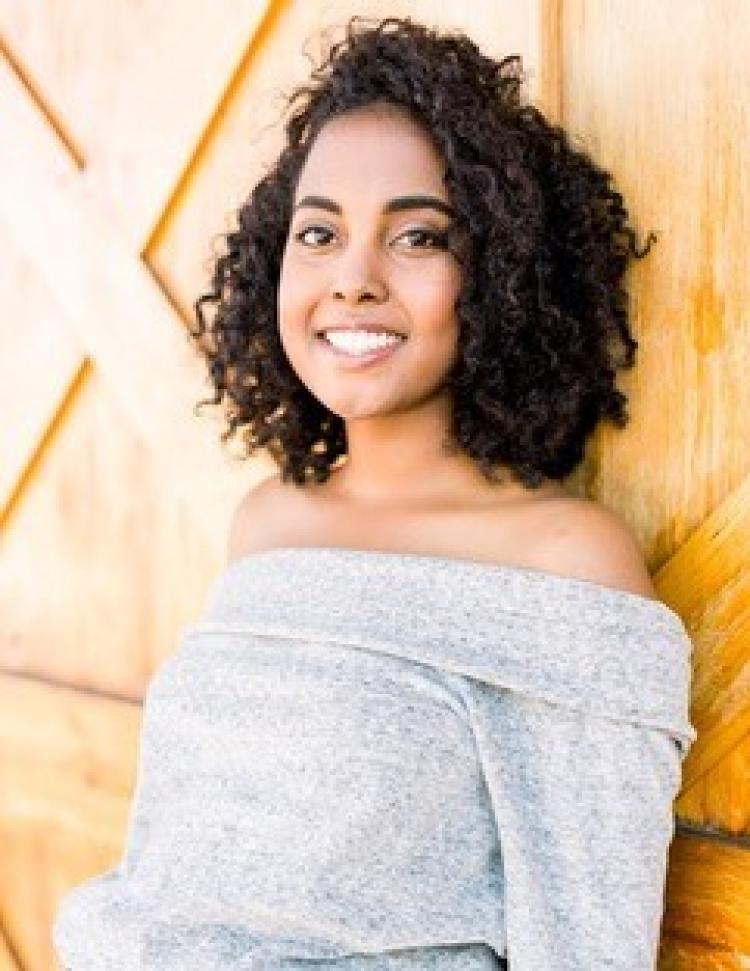
Marwa Osman, a University of Colorado Boulder junior, has spent the last two years on a leadership odyssey that has made space for students of color and environmental justice on campus. She has taken advantage of multiple programs to become a strong intersectional leader for social justice. Her journey traversed programs such as Puksta Scholars, INVST Community Studies, and the Eco-Social Justice Leadership program. The relationships and network connections Osman built along the way are what she considers her strongest assets when working to discover new ideas and build through these programs, especially from her mentors and cohort members.
“My experience in Puksta, INVST, and the E-center would not be the same if I didn’t have them around,” said Osman.
One of those CU Engage programs, Puksta Scholars, provides a competitive scholarship that enables a small group of students the opportunity to serve as catalysts for change on campus and within the local community. Students develop a project that addresses the cause of a social problem that they feel passionately about.
“I feel like it all stemmed from Puksta, it has shaped my college experience to be so different than what I thought it was going to be,” said Osman. “Seeing where leadership can take you is what I hope to gain.”
The opportunity to interact with instructors and peers in a leadership role serves as an opportunity for all students to push themselves outside of roles they currently see themselves in.
As a MCDB (Molecular, Cellular, and Developmental Biology) major, the idea of pursuing a project rooted in diversity and inclusion was intriguing to Osman. Creating a project outside of her major and having a focus on social justice was what initially attracted Osman to the program because it would include topics that were important to her that may not be discussed in her everyday classes.
“I remember I had this big idea to pursue a project where I was going to make a claymation regarding wildlife conservation but coming to CU I completely changed my mind on what I wanted to do,” said Osman. “I wanted to focus more on diversity and inclusion via what I experienced entering this campus.”
Osman’s interest in diversity and inclusion led her to INVST Community Studies, a leadership program where the belief in a just and sustainable world encourages students to engage in compassionate action as a lifetime commitment.
Combining the two programs gave Osman and her cohort members the idea for “The in Between: A Digital Media Platform Made by and for Womxn and Femmes of Color.” She developed the platform with fellow participants in INVST: Hailey Breaker, Mable Sanders, and Nirguna Poudyal.
The digital media platform acts as a safe space to express yourself in an area made by and for womxn, black, brown, and femmes of color. The website requests submissions from other womxn and femmes of color in the Boulder area to engage and create a community with each other.
“The whole point is us expressing ourselves and allowing other womxn and femmes of color to express themselves,” said Osman.
Osman will continue to pursue “The in Between” as her Puksta project and SOL project for INVST.
After her first-year internship and INVST’s Climate Justice Summer, Osman was encouraged to further expand her impact in the community and applied to be part of the Environmental Center’s Eco-Social justice Team working to show the public how social and environmental issues are interconnected. The Environmental Center’s fall training taught Osman to view nature as a tool to work with the public instead of something to work around.
“I never looked at nature as something I could be connected to,” Osman said. “I’ve always had a passion for environmental justice but to an extent of me serving it, not it also serving me, which is a shift I had during that trip.”
After the Environmental Center’s fall training, the first training Osman attended, the application of thinking in the three spheres of ecological, economic, and social allowed Osman to relate diversity and inclusion to climate.
“The internship and being part of this team, I’ve learned more about sustainability,” said Osman.
The theory of sustainability with the three spheres has led Osman to understand why the campus climate is the way it is.
“There is the economic issue of there not being enough opportunities allowing students from different backgrounds to be here, the environmental aspect of it (CU’s Campus) not feeling safe, and the social aspect of not seeing people like you and being the only person of color in class. These can all relate to the sustainability and maintenance of diversity here at CU,” said Osman. Osman’s projects have allowed her to further illustrate the connection of these theories to an environmental issue as well.
Being involved in INVST, Puksta, and the Environmental Center has influenced both Osman’s personal life and her overall college experience.
“Puksta is what drove me to pursue all of these opportunities,” said Osman. “Taking part in leadership is not what I was expecting.”
Moving students’ ideas into self-made action allows them to see what serving their communities, with engagement on social topics, can do for both the students around them and those who identify with similar issues.
Osman was accepted to the Clinton Global Initiative University to further expand her projects and meet new people in the environmental community.
Due to the fast-paced nature of COVID-19, the conference Osman was set to attend in April has been postponed.
Click the link below if you would like to view or submit to the website, “The in Between” created by Osman and her INVST cohort members.

